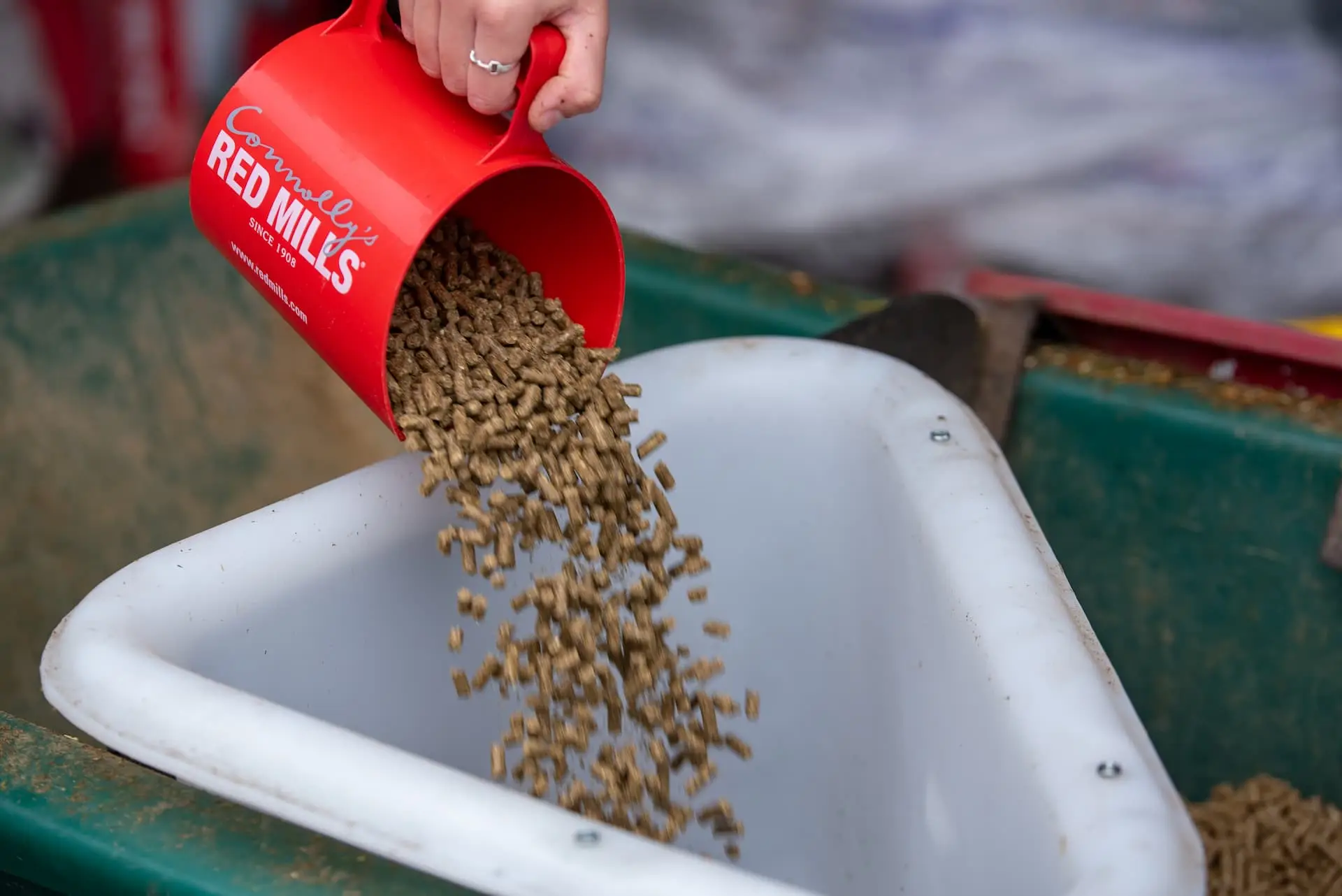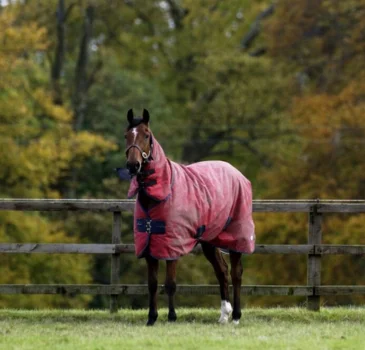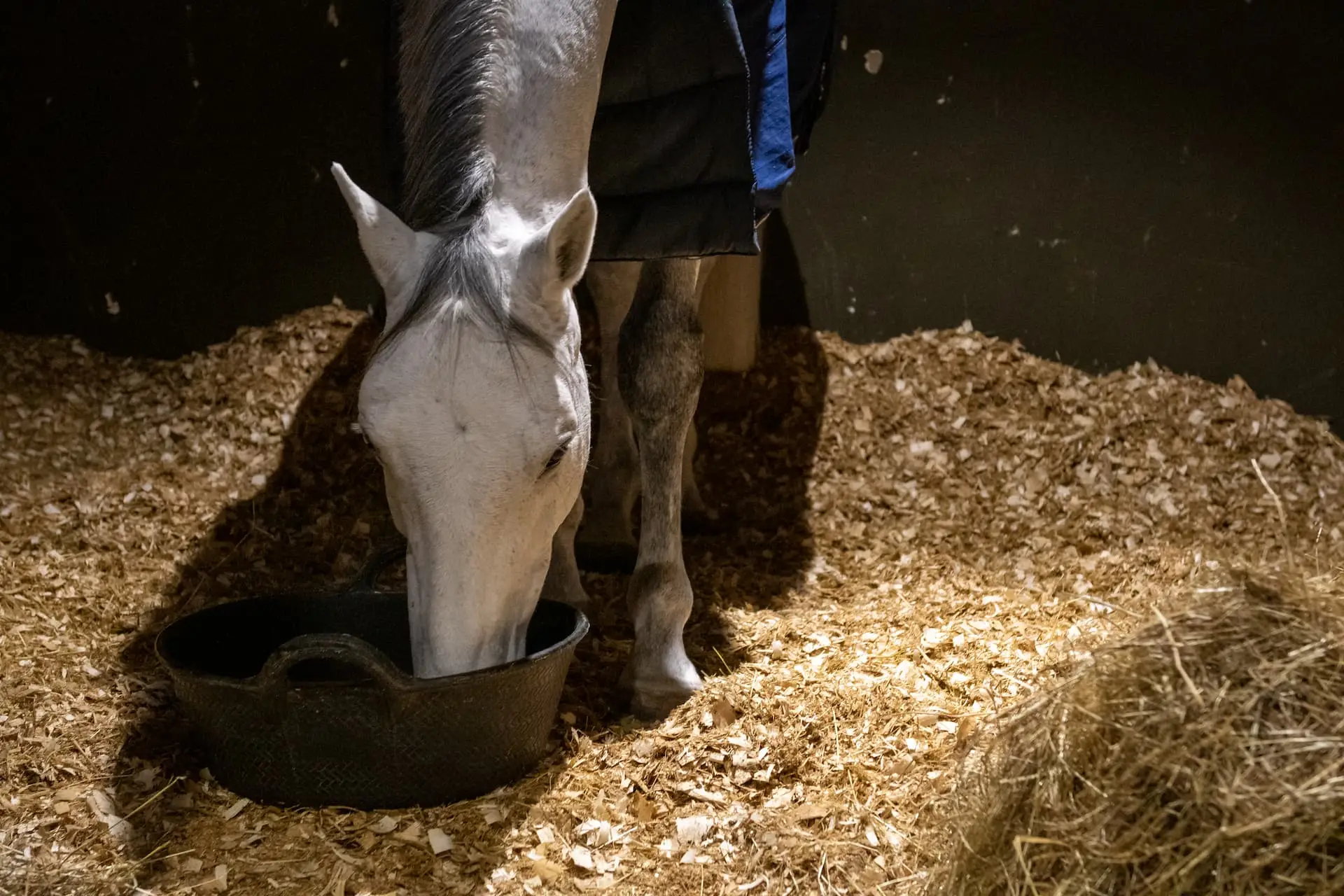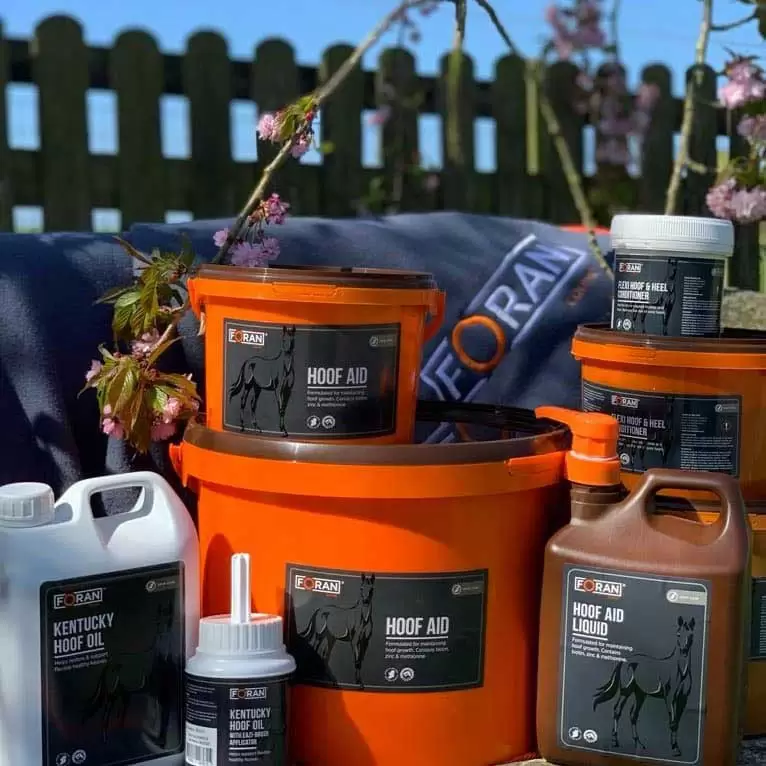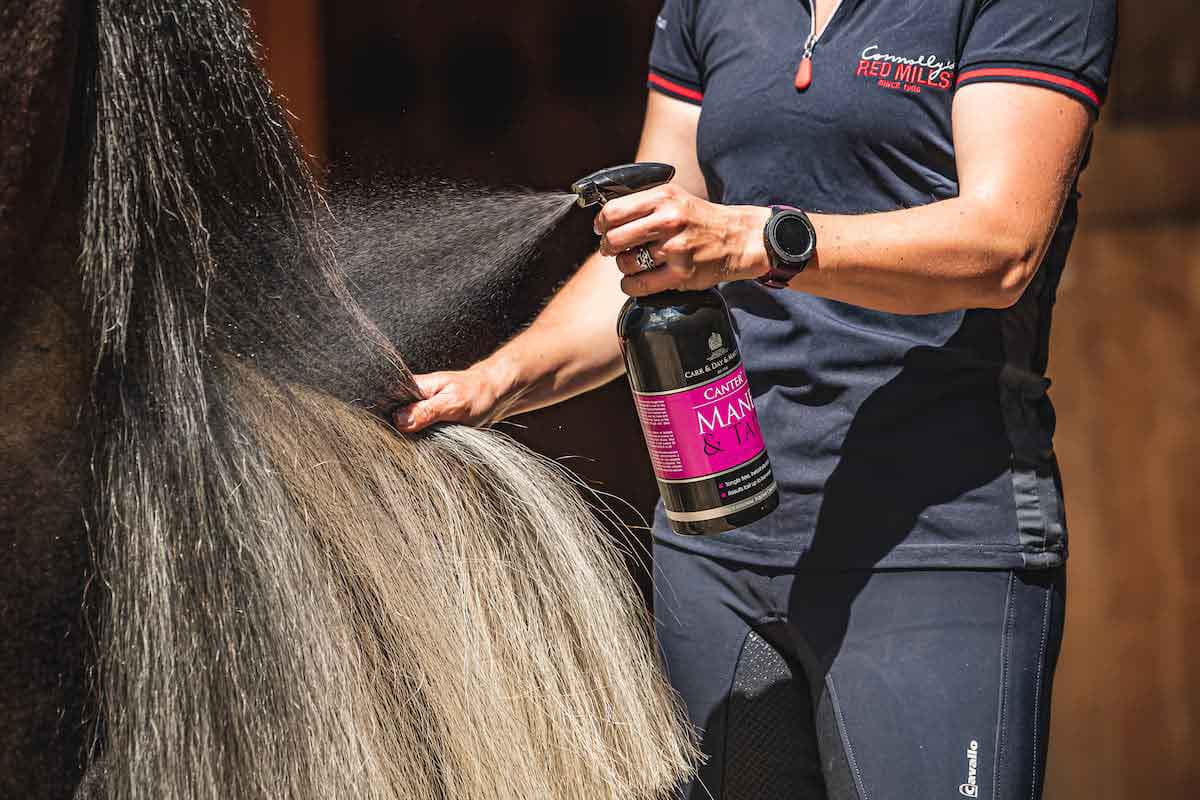Simply put, weight loss occurs due to a negative energy balance. A horse will maintain weight when the calorie intake matches the horse’s energy output. If your horse is using up more energy than he is taking in, the balance will shift and the horse will start to lose weight. Regularly keeping an eye on your horse’s body condition is important to avoid a sudden drop in weight. Body condition scoring can be helpful as you can assess both body fat and muscle mass to then assess the overall condition of your horse. Loss of body fat should not be confused with loss of muscle mass. Your horse may also look like it is losing condition if muscle mass reduces, for example, due to injury. Knowing if the horse is losing body fat and or muscle mass can help to determine the cause and most suitable method to address the issues.
Older horses can often have issues maintaining weight which can be associated with various aspects of the ageing process.
Digestive efficiency usually slows down as horses get older, they can often develop dental issues which causes difficulty chewing and there are also a number of metabolic conditions that horses are at an increased risk of developing as they get older (e.g Cushing’s). Here are some tips for preventing unexpected weight loss in older horses:
- Ensure teeth are checked regularly to pick up on any changes that may affect chewing
- Speak to a nutritionist if you need to consider a forage replacer such as beet pulp or a soaked hard feed
- Keep up to date with a regular worming regime as advised by your vet
- Provide a nutrient-dense diet providing increased levels of high-quality protein, calories and vitamins and minerals to help maintain weight
Both very harsh winters or very hot summers can lead to weight loss in horses.
During a cold snap of weather, horses can experience a sudden shift in how their body needs to utilise the calories provided. They will need to use calories in order to keep themselves warm, meaning they will need more calories than normal to maintain their current weight. Whereas in hot conditions, horses will likely sweat more and can naturally lose weight due to burning more energy in the evaporative cooling process. Regardless of whether climate is hot or cold, pasture quality and intake can be affected, and calorie intake will therefore be reduced
Here are some tips for preventing unexpected weight loss in horses in altered climates:
- Increase forage intake in cold weather – horses can generate a significant amount of body heat by digesting forage. Adding an extra couple of slices of hay per day can be more effective than putting on that extra rug
- Ensure adequate water intake – this is vital in both hot and cold climates. Water intake can significantly reduce in horses during cold weather and it is vital to prevent impaction colic. Water intake is also vital in hot weather to avoid dehydration
- Adding calories without increasing meal sizes – adding in a small amount of a high calorie feed such as Define & Shine can help increase overall calorie intake without increasing meal sizes too much and prevent sudden weight loss
- Consider immune health in cold weather – similar to humans, horses’ immune systems are at an increased risk in winter. Adding in some Foran Equine Kentucky Karron Oil can provide additional omega 3’s to have a beneficial effect on immunity
Some horses may be underweight due to health problems which may require veterinary attention.
Parasites, dental issues, infectious disease, ulcers, and chronic pain must be ruled out as the cause of unwanted weight loss before making any changes to the diet.
Some underlying medical conditions such as ulcers will require the support of a special dietary regime to help the horse gain weight and condition. Dietary management of a horse suffering from ulcers should include ad-lib access to hay/ haylage or pasture wherever possible, providing an energy-dense and low-starch diet and feeding smaller concentrate meals. The concentrate feed should provide calories from non-cereal grain sources such as highly digestible fibres, (e.g beet pulp). At Connolly’s RED MILLS our Horse Care range includes a variety of low-starch feeds relying on alternative energy sources
The most common reason for weight loss in horses is simply that the calories being fed are not meeting your horse’s daily requirements.
Several options can be considered to address a lack of calories in the diet.
Forage should account for the largest proportion of your horses’ diet and can safely be fed ad lib. Consider increasing the amount of hay/ haylage you offer or allowing 24-hour access to grazing. Forage is a source of calories and is necessary to ensure normal functioning of the digestive tract. If providing increased amounts of forage is not enough to promote weight gain, calories from concentrate feeds must be considered. Choose a feed specifically formulated to promote condition such as RED MILLS Conditioning Mix . A high-calorie, barley-based muesli suitable for performance horses, which has been steam cooked to increase digestibility
RED MILLS Comfort Mash is a Nutritionally Balanced Bran Mash for Horses
For horses that may be particularly fussy, consider using RED MILLS Comfort Mash as it is a fully balanced mash feed formulated to promote condition and encourage appetite. If the horse requires extra calories, but it becomes too hot and excitable on a grain-based diet, choose a feed relying on ‘non-heating’ ingredients such as super fibres and oils for supply of calories. Connolly’s RED MILLS RED MILLS Horse Care Ultra Cubes may be ideal as they provide a conditioning, yet cereal-grain free source of calories.
The calorie density of the horse's diet can be increased by feeding small, highly digestible meals divided evenly throughout the day.
Sometimes, we just simply need to add more feed but it is important to discuss this with a nutritionist as feeding too much can have negative effects also. An easy way of adding additional calories without increasing meal sizes too much is with RED MILLS define and Shine. Define & Shine is a high-calorie pellet rich in key amino acids & omega-3 oils, formulated to promote extra condition & muscle definition. The feeding rate is small at an average of 100g/100kg of body weight, therefore reducing the quantity of feed added to each meal but making it more calorie-dense. Keeping concentrate meals small will allow the horse to digest and absorb nutrients more efficiently while helping to maintain digestive health.
On the other hand, if you are happy with the feed you are using but would just like to add more calories to the diet on a short term basis, consider the addition of oil such as Foran Equine Kentucky Karon Oil . Choosing an oil rich in omega-3 fatty acids can also help to achieve good coat condition and benefit digestive health.
If you are concerned about weight loss or have any additional queries, please contact our nutrition team who are happy to help.
Take-home messages
- Weight loss is a common problem in horses.
- Identifying the cause is key to support weight gain.
- Rule out underlying clinical reasons before changing the diet.
- Determine whether the horse is receiving adequate calories in the diet.
- Verify that the horse is indeed consuming its intended feed.
- Adjust the diet if necessary, to ensure sufficient intake of calories and other nutrients such as high-quality protein, oils, vitamins and minerals.
